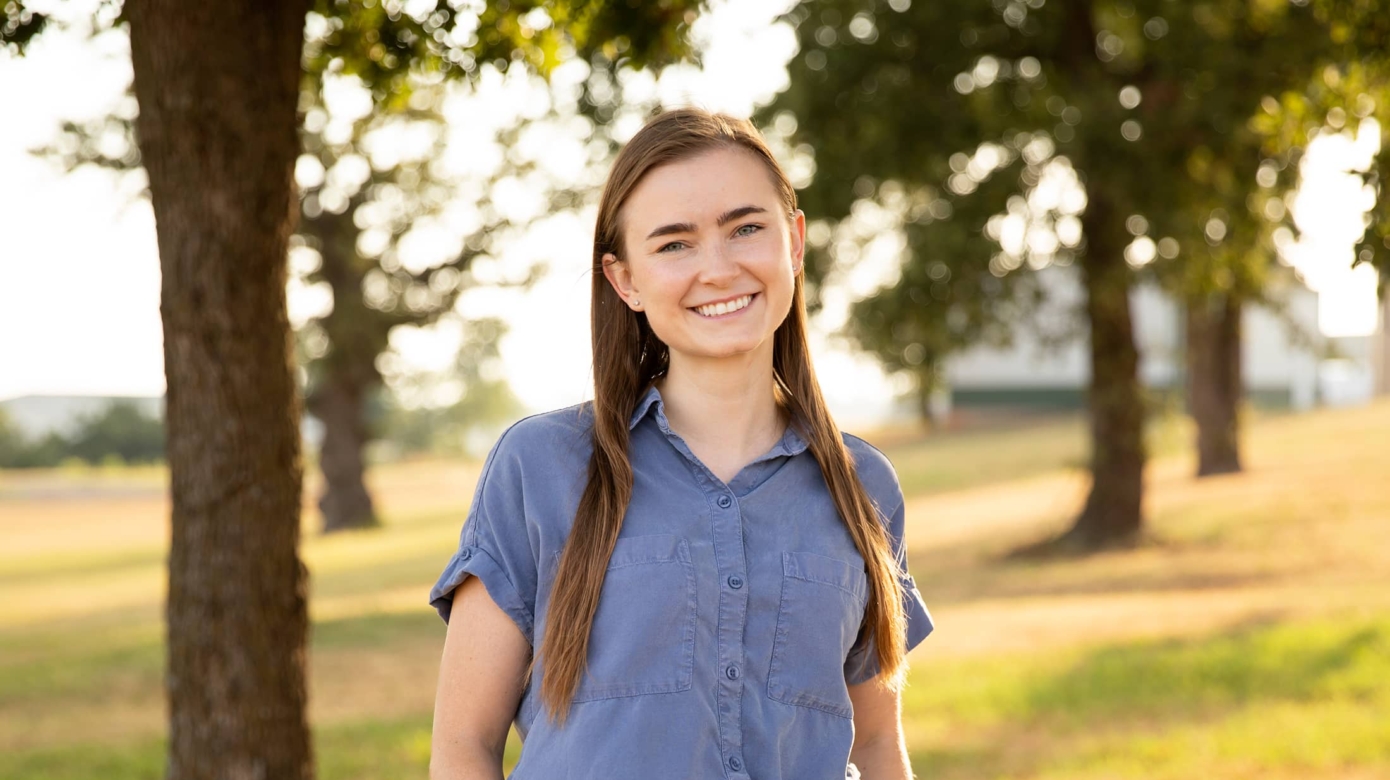Before Citizen Potawatomi Nation tribal member Christine Munoz accepted a job with the Tribe’s health services department, she took a tour of the facilities. She lived in Tulsa, Oklahoma, with her husband at the time, but the experience pushed her in a new direction.
“When I got this job, I was like, ‘I’ve got to go back.’ … I was so lucky to find out about my Tribe. It just kind of happened. I came over here just to see what was going on because I didn’t know our clinic was like this. Our clinic’s amazing! I had no idea that they had these facilities,” Munoz said.
She began her first job as an advanced practice registered nurse with CPNHS’ West Clinic in March 2021. As a Tescier family descendant, she relishes the chance to learn something new every day about the culture or functions of the Tribe and its services.
“I have learned that the Tribe has a great sense of community,” Munoz said. “Everyone is very caring, and it’s just amazing the resources that the Tribe uses to help their people. And it’s nice because I get to see directly how much help we’re able to give Tribal members. … I feel very grateful because there are so many things we can do to help my patients.”
Climbing the ladder
After completing her bachelor’s degree in zoology from the University of Oklahoma, Munoz continued classes and graduated with her nursing degree in 2016. She then worked as a registered nurse at both OU Medical Center in Oklahoma City and Saint Francis Health System in Tulsa. She took her education one step further and received her family nurse practitioner certificate from OU in May 2020.
“I just want to take on the much larger role and be more involved in helping people,” Munoz said.
She spent her time as an RN in intensive and acute care units; however, the West Clinic and her role with CPN let her transition to a primary care setting. Munoz enjoys the switch from reactive to preventative medicine.
“Preventative care and health screenings are very essential in primary care. So, encouraging people to live their healthiest lives and doing as much as you can to prevent illness or catch things early and treat them is very important,” she said.
Munoz feels the time slip by while talking to patients and their families. She believes a deeper understanding of an individual’s life has the potential to improve the quality of care.
“That’s kind of the benefit of family practice, too. You want to know the whole person. There’s more than just the physical aspects that go into overall health. There are other things you want to know — the emotional, mental, social, spiritual and other aspects that contribute to overall health as well,” Munoz said.
When difficult situations arise, she feels supported by CPNHS leadership. She finds the mentorship she receives from the administrators and doctors around her invaluable, especially throughout her first year as a nurse practitioner.
“You want to do the best that you can for people and make well-informed decisions. … I’ve never had anyone say, ‘Oh, no, I can’t help you with that.’ Everyone is very gracious and so helpful. They’re all wonderful people. Just having that mentor is just a huge blessing because I don’t know that everyone has that when they start their first job,” Munoz said.
Across the continents
At 32 years old, Munoz and her husband spend their younger years globe-trotting. As she names off the places she has visited around the world, it becomes apparent her passport shows signs of wear and tear: St. Croix, Iceland, Paris, Kenya, Uganda, Colombia, to name a few.
“I took coffee classes (in Colombia) because I love coffee. … I filled a suitcase full of coffee to come back with. And right before you get on the plane, they check your suitcase, open it up. And they’re touching all my coffee, making sure it’s beans,” she said.
Munoz has gazed at strips of the Aurora Borealis, attended a beach wedding in the Caribbean and gone on a safari in Africa.
“I was very lucky to see the Great Apes and trek into the Bwindi Impenetrable Forest. Let me tell you, that’s a hard hike. There is a lot of brush. I was like, ‘It’s called impenetrable for a reason!’” she said and chuckled.
With a degree in zoology, she loves animals, and as a nurse practitioner, she spends her days analyzing the human condition. Munoz believes traveling serves both of those purposes and her interests as well.
“I think it’s very important to spend time in nature and see the way other cultures live or have a good understanding of the world. … It’s amazing how you find out that you have a lot in common in many ways, and then also you get to see all the differences which is interesting, but you still have more in common than not. Everyone is very human at the core, and everyone is experiencing birth, life, growth, learning, love and death,” she said.
Munoz’s satisfaction working for CPNHS comes from its understanding of that same principle, and she enjoys sharing a mission with a group of professionals who set a high standard of care for all its patients.
“I feel like everything runs very smoothly over here,” she said. “I think everyone does an excellent job. That’s why I’m just thankful to be here.”
Find out more about Citizen Potawatomi Nation Health Services at cpn.news/health.

